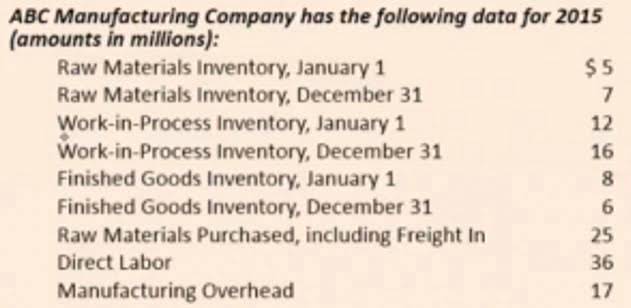
Fifty states plus the District of Columbia require accountants to earn 150 credit hours of college education before taking the national four-part CPA exam. Bookkeepers may start working for a small business to gain experience and then go back to school for a degree in accounting or finance. Enrolling in one of the best online bookkeeping classes is a smart way for those interested in this career to bolster their existing financial knowledge. As an accountant, you may work for a company or yourself, and there are opportunities for accountants in many industries like law, insurance and health, small business, and, of course, tax accounting firms. However, significant differences exist, like the work conducted in each career and the skills needed to be successful.

Stay up-to-date with the latest small business insights and trends!
If you’d like to learn more about identifying the best ways to improve back-office practices, contact Visory today. Payroll is the process of verifying and distributing payments to employees at the agreed rate and in accordance with designated award rates. As an accountant, you must pay attention to figures and financial details, but it is more essential to possess sharp logic skills and big-picture problem-solving abilities.
Intuit Talent Acquisition

You may also be an ideal bookkeeping candidate if you want a good job with a respectable wage and decent security but may not be looking for a long-term career. Therefore, those who do not like math, get confused easily when making simple calculations, or are generally opposed to number crunching should not apply. It is typically performed by a bookkeeper, which is not the same as an accountant. As an accounting firm, we hope to answer some questions that we are often asked by retained earnings new clients. Laura is a freelance writer specializing in small business, ecommerce and lifestyle content.

Implementing Effective Financial Strategies: Driving Success
The list hereafter is just a summary of the many duties an accountant can be responsible for on any given day. Determining https://www.bookstime.com/ which tasks only a bookkeeper can help with and what type of qualifications your prospective employer needs is vital if you are considering hiring one.
- Bookkeeping is just one facet of doing business and keeping accurate financial records.
- Both bookkeepers and accountants may charge a flat rate or, more commonly, by the hour.
- This practice helps establish the company’s financial outcomes and allows owners to track where their money is going.
- Whether it’s increasing revenue, reducing expenses, or improving cash flow, defining measurable goals helps align your financial efforts with your overall business objectives.
- These include taxes the employee is paying via their withholdings each pay period, as well as taxes the business owes.
Advantages of working with a bookkeeper
- When you think of bookkeeping, you may think it’s all just numbers and spreadsheets.
- Outsourcing payroll to a payroll accounting can free up your time, and the accountant does the entire payroll process for you.
- Let us walk you through everything you need to know about the basics of bookkeeping.
- Start by deciding on the system you want to use, whether it’s an online program, paid software or a spreadsheet.
- In conclusion, payroll management is a vital component of financial management, ensuring that employees are compensated accurately and timely while maintaining compliance with relevant regulations.
- In their most basic form, payroll and bookkeeping are different because they manage different functions within an organization.
One of the key insights gained from our exploration is the importance of differentiation. Accounting, payroll, and bookkeeping may seem interchangeable at first glance, but they serve distinct purposes within the realm of financial management. Accounting provides the framework for recording, analyzing, and interpreting financial transactions, while payroll management focuses on compensating employees accurately and complying with tax laws. Bookkeeping, on the other hand, involves the meticulous recording and organization of financial data to facilitate accurate reporting and analysis. Traditionally, bookkeepers have managed the day-to-day financial transactions in a business. Bookkeepers have also often provided full back-office support, including invoicing clients, paying bills, and processing payroll.

But business owners should keep in mind how many hours they’ll need to pay out in the future. Then employees receive their paychecks for that pay period on January 17. Until you pay employees, those wages are a liability because it’s money you owe. Outsourcing payroll to a payroll accounting can free up your time, and the accountant does the entire payroll process for you. While there are a myriad of courses available for bookkeeper education and training, a good deal of bookkeepers are self-taught since there are no required certifications needed to work as one.
Bookkeeping vs. Accounting: The Basics
Working with an accountant or bookkeeper doesn’t mean losing control of your business. The best bookkeepers and accountants work with you, giving you visibility into your finances and helping you get a better understanding of your company. Instead, an accounting firm may hire an in-house bookkeeping team or partner with their client’s bookkeeper to provide business owners with the expertise and financial support they need. In this post, we’ll cover the differences and similarities between accountants and bookkeepers and their services so you know which to hire.
Accountant Tasks
Whether it’s tracking revenue trends, monitoring expenses, or assessing profitability, robust financial reporting lays the foundation for sustainable growth and success. Accounting focuses on using that data to assess the financial health of a business and make data-driven business decisions. Bookkeeping, often regarded as the foundation of financial management, involves recording daily financial transactions in a systematic and organized manner. Unlike accounting, which analyzes these transactions to provide insights into financial performance, bookkeeping focuses on the accurate documentation and categorization of financial data. In today’s digital age, accounting software has revolutionized the way businesses manage their finances, offering streamlined solutions for bookkeeping, invoicing, and financial analysis. By leveraging the power of technology, businesses can streamline their bookkeeping and payroll services accounting processes, minimize errors, and gain real-time visibility into their financial performance.